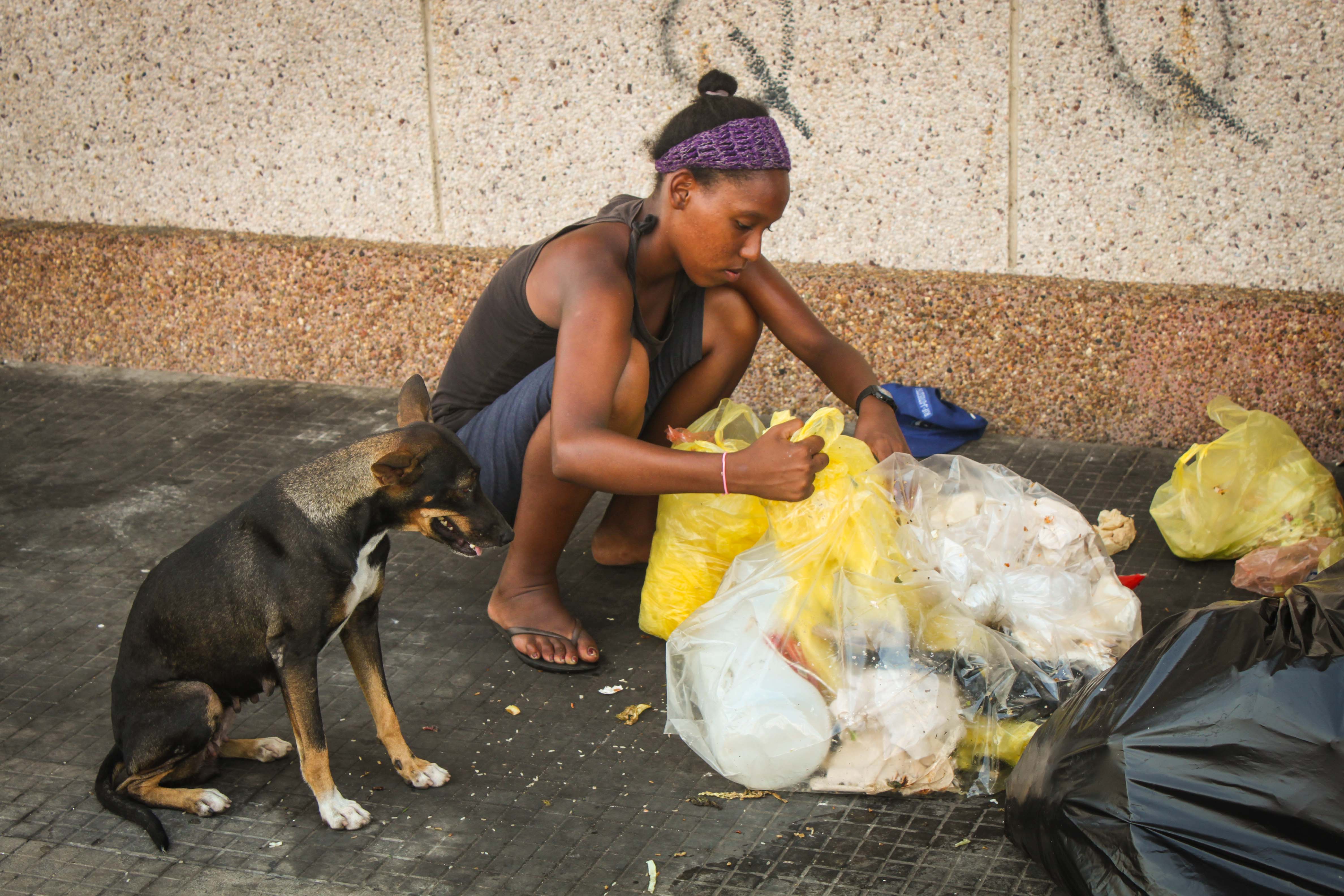Current State of Maracaibo City: Looks Like War But It’s Chavismo
Maracaibo now looks like a city devastated by war. But that’s not what happened. It’s what chavismo has done to the second most important city in Venezuela: crime, chaos, collapse of public services, hunger, poverty and desperation.


Photos: Mario Pérez Chacin
Testimonies of war survivors carry the desolation and sadness caused by cruel treatments associated with the armed conflict. But in Zulia, we’re living an undeclared war. Everyday life in Maracaibo, the second most important city in the country, is filled with hunger, medicine shortages, the collapse of basic services, and the insecurity caused by common criminals and State security bodies.
“I feed from the scraps that restaurants throw away,” cries Inés, a 70-year-old woman who scavenges the garbage of a famous Chinese restaurant at Maracaibo’s Bella Vista Avenue. “Take a picture of me so this damn government sees that an old woman has to eat garbage.”
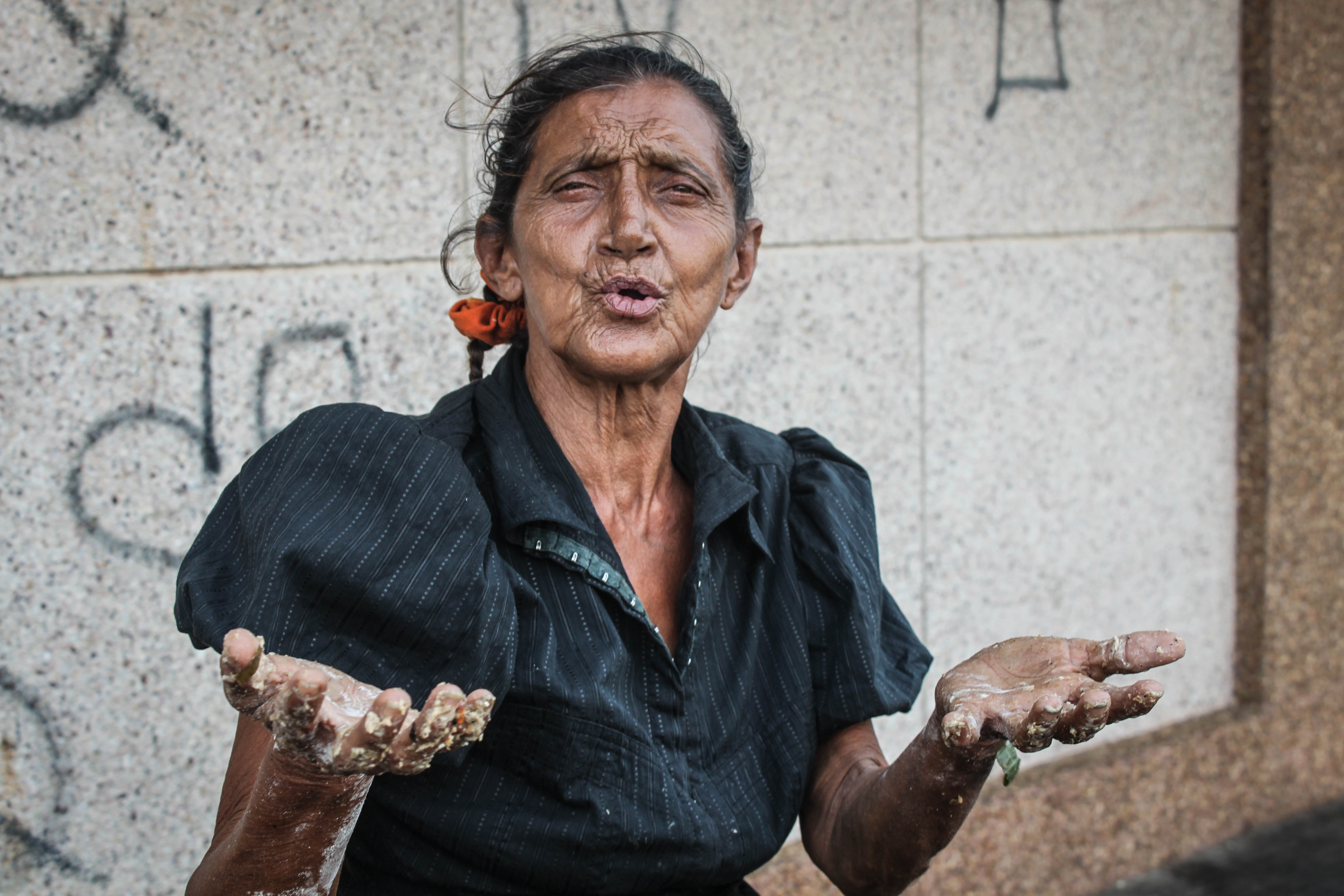 “I feed from the scraps that restaurants throw away,” cries Inés, a 70-year-old woman. Photo: Mario Pérez
“I feed from the scraps that restaurants throw away,” cries Inés, a 70-year-old woman. Photo: Mario Pérez
Inés was with two young women dressed in black and three dogs. “Three days ago, my husband drowned in the Maracaibo Lake, near the Vereda del Lago,” said one of the women, “they say he was fishing and his body was found floating. I have no money to retrieve him, or for the wake. I’ve asked for everyone’s help and nobody can do anything for me. Meanwhile, how am I supposed to take care of my kids? All I have is scraps from restaurants.”
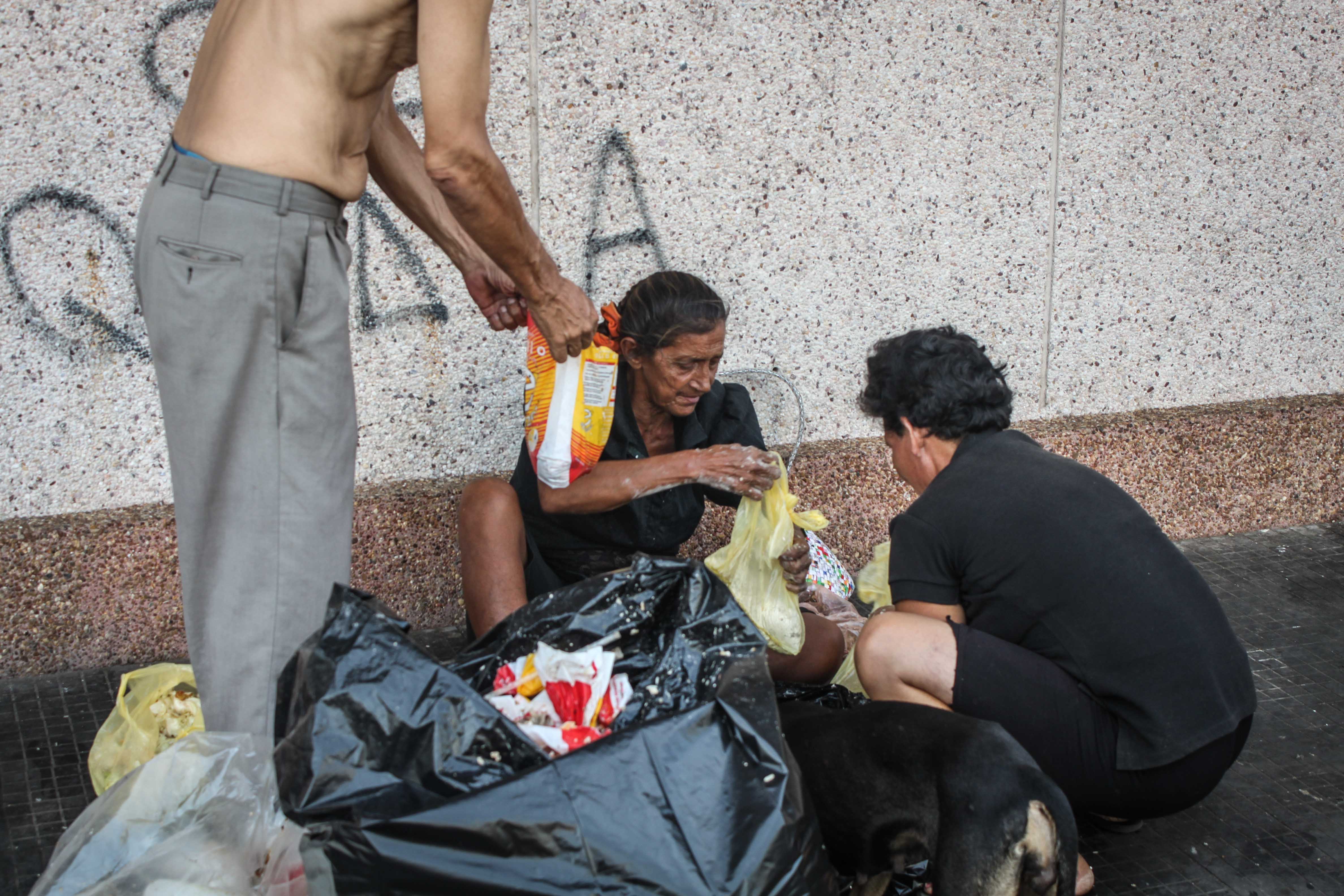 How am I supposed to take care of my kids? All I have is scraps from restaurants.” Photo: Mario Pérez
How am I supposed to take care of my kids? All I have is scraps from restaurants.” Photo: Mario Pérez
Santa Lucía is Maracaibo’s second biggest traditional neighborhood, a picturesque area of old houses. But since the underwater electric wire in the Rafael Urdaneta bridge burned down, blackouts and water supply failures have become more frequent.
“I feel I’m in the desert and must walk long distances to find water to bring back home,” said Josué while he transports two water containers in his baby’s stroller.
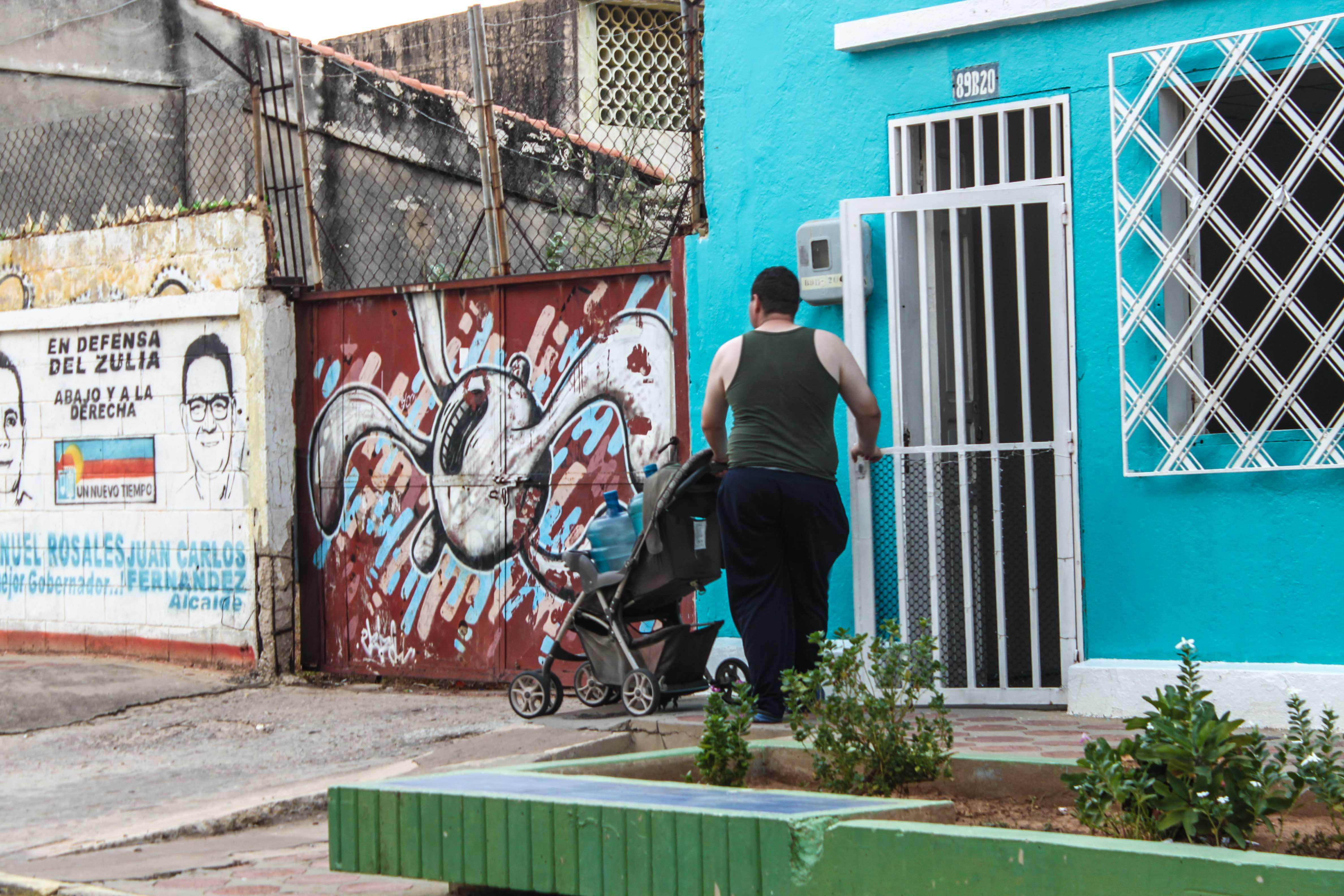 “I feel I’m in the desert and must walk long distances to find water to bring back home” Photo: Mario Pérez
“I feel I’m in the desert and must walk long distances to find water to bring back home” Photo: Mario Pérez
“It’s been two months since I’ve had running water at home,” said Marlene Nava, a reputed journalist, chronicler and poet in the region, who’s also the secretary of Zulia State’s Academy of History, who has to ask her neighbors for help due to her age.
Marlene told us another dark story that’s increasingly common in Maracaibo neighborhoods: That very day, her neighbor Nerio Castellano was taken by CICPC officers for not having an ID while he was on the rooftop of the journalist’s house helping her repair the damage done by two unknown people who tried to break in the previous night.
“It’s not fair! On top of suffering this tragedy with water, they’re taking away good people in the neighborhood. Nerio’s 50 years old and he makes ends meet by helping the elderly in Santa Lucía. He fixes what he can… and they arrest him? Why don’t they arrest the criminals who tried to break into my house last night?”
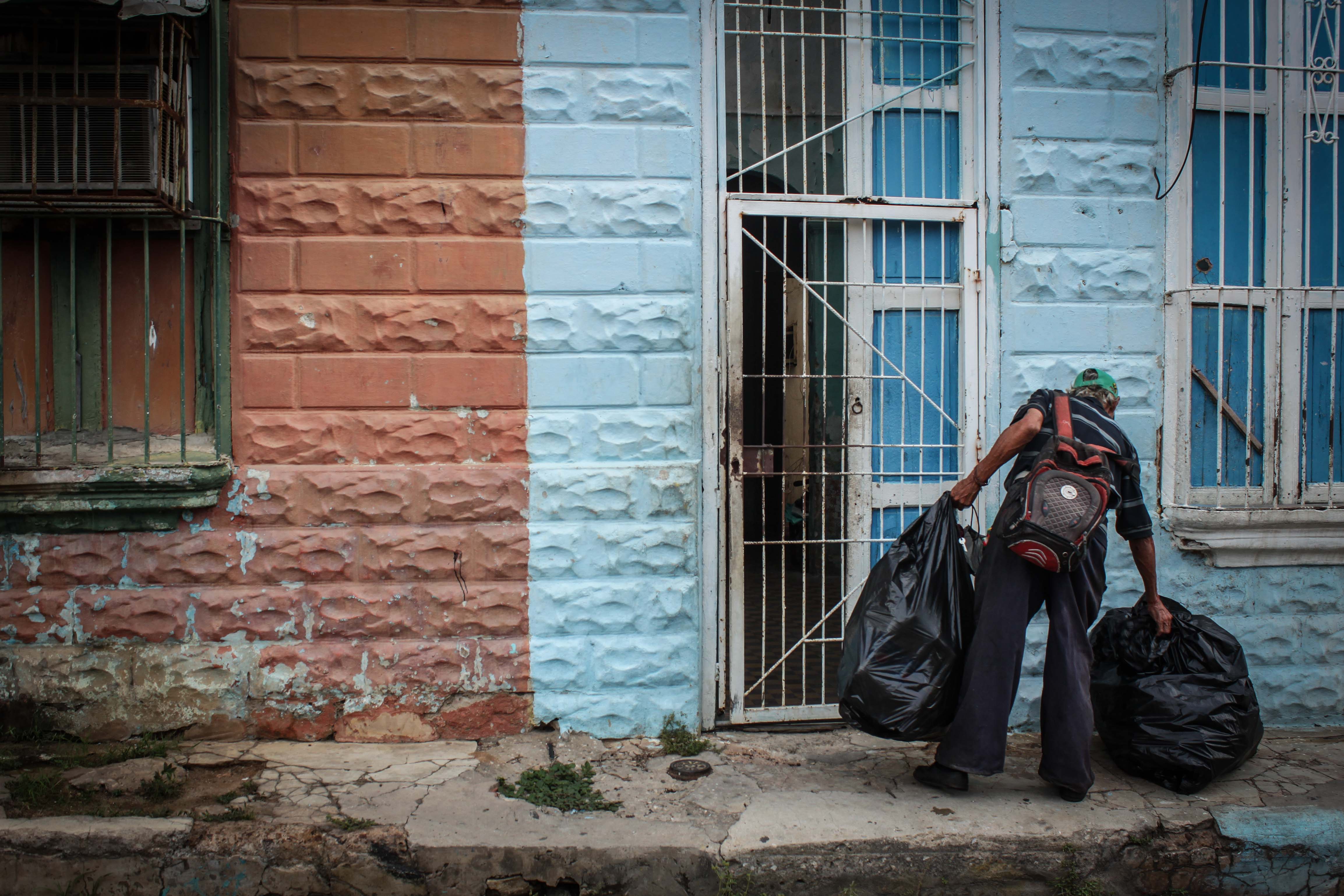 Atilio Acurero isn’t quite 70 yet, but he’s laying on a bed in his living room in El Empedrado neighborhood. He broke his waist when he fell in an open sewer he didn’t see because of a scheduled blackout at night.
Atilio Acurero isn’t quite 70 yet, but he’s laying on a bed in his living room in El Empedrado neighborhood. He broke his waist when he fell in an open sewer he didn’t see because of a scheduled blackout at night.
His younger sister, Marisela Acurero, is taking care of him because the rest of the family left the country and they can’t send any money. “When he fell, it took forever to pull him out. Finally the fire brigade helped, because the police didn’t want to cooperate,” she said, frustrated by the officers’ reaction.
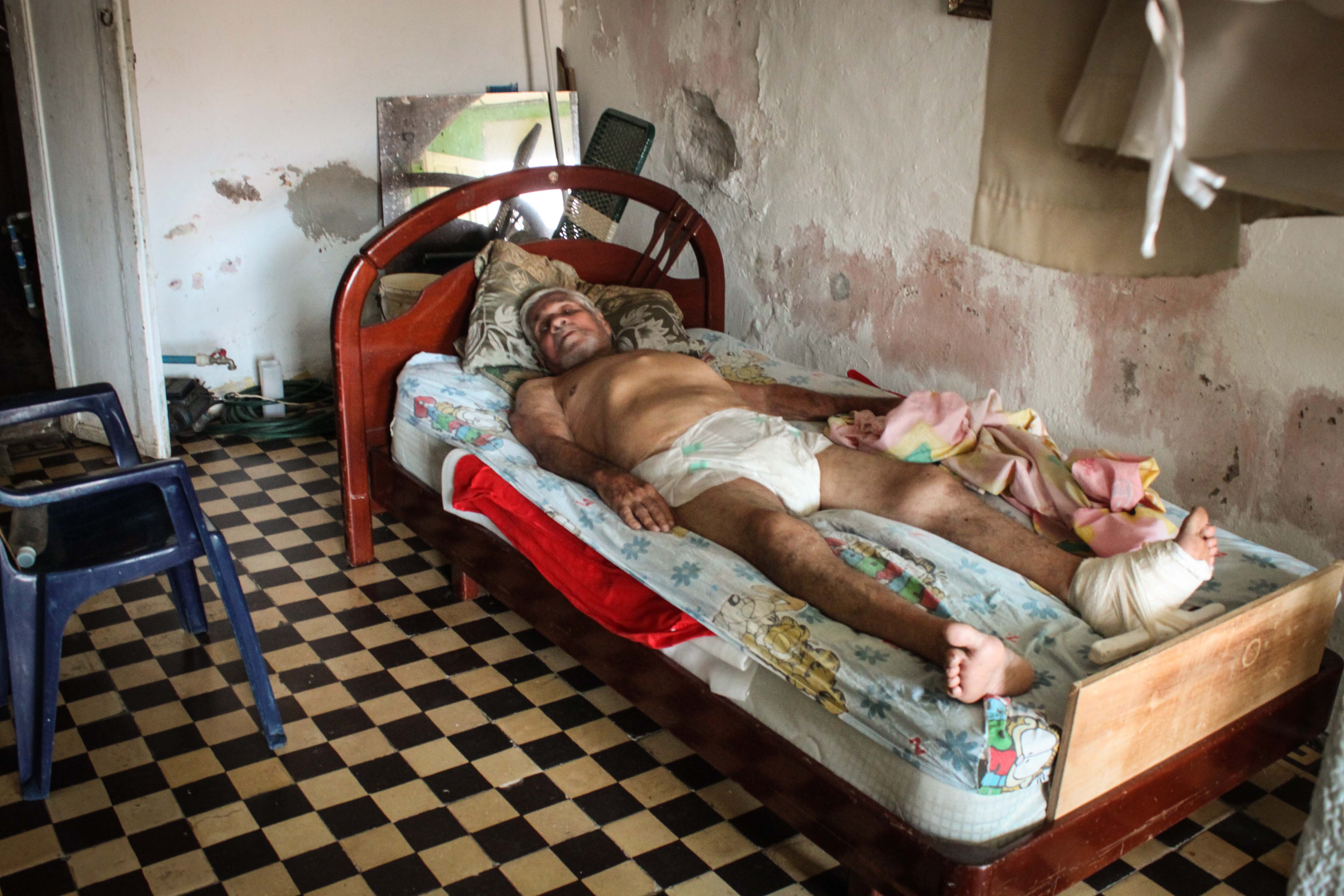 Atilio Acurero broke his waist when he fell in an open sewer he didn’t see because of a scheduled blackout at night. Photo: Mario Pérez
Atilio Acurero broke his waist when he fell in an open sewer he didn’t see because of a scheduled blackout at night. Photo: Mario Pérez
Marisela talks about how difficult it is to take care of a sick person without access to running water. “It’s been a week since I last bathed him. Also, as a result of these six-hour blackouts twice a day, I had to move him to the living room so he could get some fresh air.”
When Atilio broke his waist he was taken to the Noriega Trigo Hospital, located in San Francisco municipality, where Zulia governor Omar Prieto was a mayor for eight years. He waited for nine days to undergo surgery, but in the end he had to be taken back home because the surgery was impossible due to lack of supplies and unavailable operating rooms. The hospital’s authorities and doctors promised they’d locate him for surgery as soon as they could. This was over a month ago.
When did we start to feel the consequences of a non-existent war? Will we survive to tell these stories to our grandchildren?
Caracas Chronicles is 100% reader-supported.
We’ve been able to hang on for 22 years in one of the craziest media landscapes in the world. We’ve seen different media outlets in Venezuela (and abroad) closing shop, something we’re looking to avoid at all costs. Your collaboration goes a long way in helping us weather the storm.
Donate


